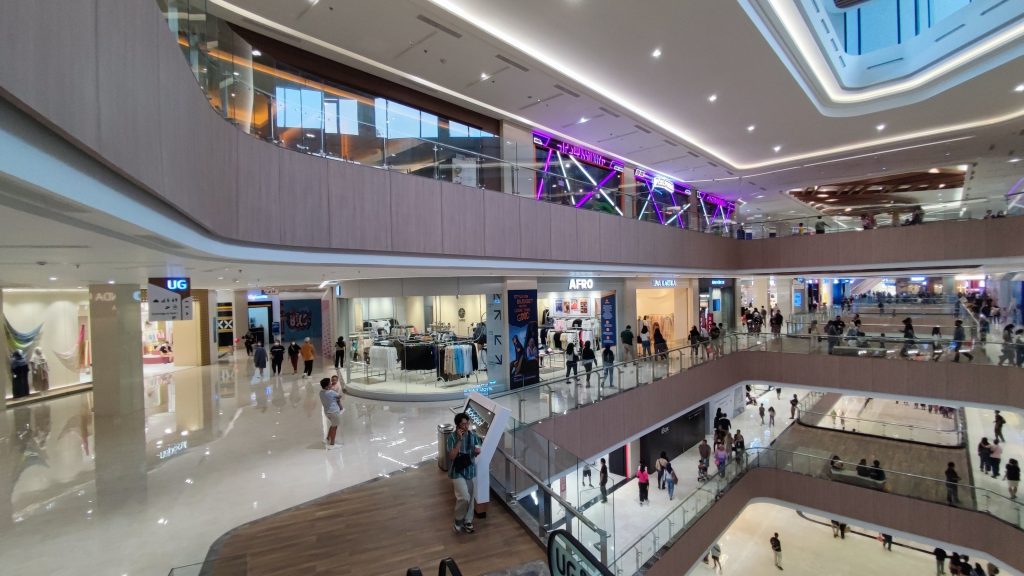The retail industry faces constant challenges when it comes to security and loss prevention, with theft and shrinkage costing businesses billions each year. Traditional methods of monitoring and protecting retail spaces, such as security cameras and human guards, are no longer enough to keep up with increasingly sophisticated threats. Enter Artificial Intelligence (AI), a game-changer in the field of retail security. AI-driven solutions like facial recognition, behaviour analysis, and predictive analytics are transforming how retailers protect their stores and prevent losses.
In this blog, we’ll explore how these AI technologies are revolutionising retail security and why adopting them is crucial for modern retailers.
The Power of Facial Recognition in Retail Security
Facial recognition technology has rapidly advanced in recent years and is now a key tool in retail security systems. By analysing and identifying faces in real-time, facial recognition helps retailers keep a closer eye on potential security threats.
- Identifying known offenders: One of the most significant advantages of facial recognition is its ability to recognise repeat offenders or individuals flagged for previous thefts. When someone with a history of shoplifting enters the store, the system can alert security personnel instantly, allowing them to take preventive measures before any theft occurs.
- Reducing false alarms: Facial recognition can help reduce false alarms by accurately distinguishing between different individuals, preventing unnecessary interventions and allowing staff to focus on genuine threats. This not only improves security efficiency but also creates a more comfortable shopping experience for law-abiding customers.
- Customising customer service: Beyond security, facial recognition can enhance customer service. By recognising loyal or VIP customers, store staff can provide a more personalised shopping experience, improving customer satisfaction while maintaining a secure environment.
Behaviour Analysis: Spotting Suspicious Activity Before It Happens
AI-driven behaviour analysis is another innovative technology that is transforming retail security. By monitoring customer actions and movements, AI systems can detect unusual behaviour patterns that might signal potential theft or fraud.
- Real-time monitoring of behaviour: Advanced AI algorithms can analyse video footage in real-time, flagging suspicious activities like lingering in certain areas, avoiding staff, or repeatedly entering and exiting the store. These behaviours, which are often early signs of shoplifting or fraudulent activity, allow security teams to act proactively.
- Minimising human error: Unlike humans, who may miss subtle signs of suspicious behaviour, AI systems are constantly monitoring and analysing vast amounts of data with pinpoint accuracy. This minimises the risk of human error and ensures that no potential threat goes unnoticed.
- Improving employee safety: Behaviour analysis can also help protect store employees by detecting aggressive or potentially dangerous behaviour from customers. Early warnings of such behaviour allow staff to take appropriate precautions, ensuring a safer working environment.
Predictive Analytics: Anticipating Threats Before They Occur
Predictive analytics is a powerful tool that allows retailers to anticipate and prevent security issues before they even happen. By analysing historical data on theft patterns, store layouts, and customer behaviour, AI can forecast potential security risks and recommend preventive actions.
- Identifying high-risk areas: AI can analyse data from various stores to identify patterns and pinpoint areas within a store that are most vulnerable to theft. This insight allows retailers to adjust store layouts, increase security in specific zones, or focus surveillance efforts more effectively.
- Forecasting peak theft times: Predictive analytics can also help retailers understand when thefts are most likely to occur. Whether it’s during peak shopping hours or when specific products are on sale, AI can predict these windows and allow retailers to deploy additional security resources at the right times.
- Optimising loss prevention strategies: Retailers can use predictive analytics to refine their loss prevention strategies continually. By understanding which theft-prevention methods have been most effective in the past, AI helps businesses optimise their security protocols, leading to reduced shrinkage over time.
The Benefits of AI-Driven Retail Security
The integration of AI-driven solutions into retail security offers numerous advantages that go beyond preventing theft and shrinkage. Here’s why AI is a game-changer for the retail industry:
- Increased efficiency: AI automates many aspects of retail security, from monitoring to reporting, reducing the need for extensive human involvement. This not only improves efficiency but also cuts down on operational costs associated with manual security efforts.
- Enhanced decision-making: With the insights provided by AI-driven analytics, retailers can make more informed decisions about security investments, store layouts, and employee training. This data-driven approach allows for more targeted and effective loss prevention strategies.
- Improved customer experience: AI technologies such as facial recognition and behaviour analysis not only enhance security but also contribute to a smoother, more personalised customer experience. Shoppers can enjoy a safer and more pleasant environment, with less intrusive security measures in place.
- Scalability: As retail businesses grow or expand, AI systems can easily scale to meet their security needs. Whether a retailer operates a single store or a nationwide chain, AI-driven solutions can be tailored to fit the scale of the operation, ensuring consistent security across all locations.
Challenges and Considerations
While AI brings immense benefits to retail security, it’s essential for retailers to consider the ethical implications and potential challenges associated with these technologies.
- Privacy concerns: Facial recognition and behaviour analysis technologies raise privacy concerns among consumers, who may feel uncomfortable with constant monitoring. Retailers must be transparent about their use of AI in security and ensure they comply with data protection regulations.
- Cost of implementation: AI-driven security systems can be expensive to implement initially, particularly for smaller retailers. However, the long-term savings in reduced shrinkage and improved operational efficiency often outweigh the upfront investment.
- Training and integration: Integrating AI into existing security protocols requires staff training and seamless technology integration. Retailers must invest in training their employees to effectively manage and respond to AI-generated insights.
Conclusion
As the retail industry continues to evolve, so too must its security measures. AI-driven technologies like facial recognition, behaviour analysis, and predictive analytics are revolutionising loss prevention, providing retailers with powerful tools to reduce theft, minimise shrinkage, and improve overall safety. By adopting these cutting-edge solutions, retailers can not only protect their bottom line but also enhance the shopping experience for their customers.
In an increasingly competitive retail landscape, investing in AI-driven security is not just a smart move—it’s essential for staying ahead. As the technology continues to advance, the future of retail security is sure to become even more sophisticated, efficient, and effective.
MA Services Group is at the forefront of providing AI-powered security solutions to retail businesses. Contact us today to learn more about how we can help protect your store with the latest AI-driven innovations.


